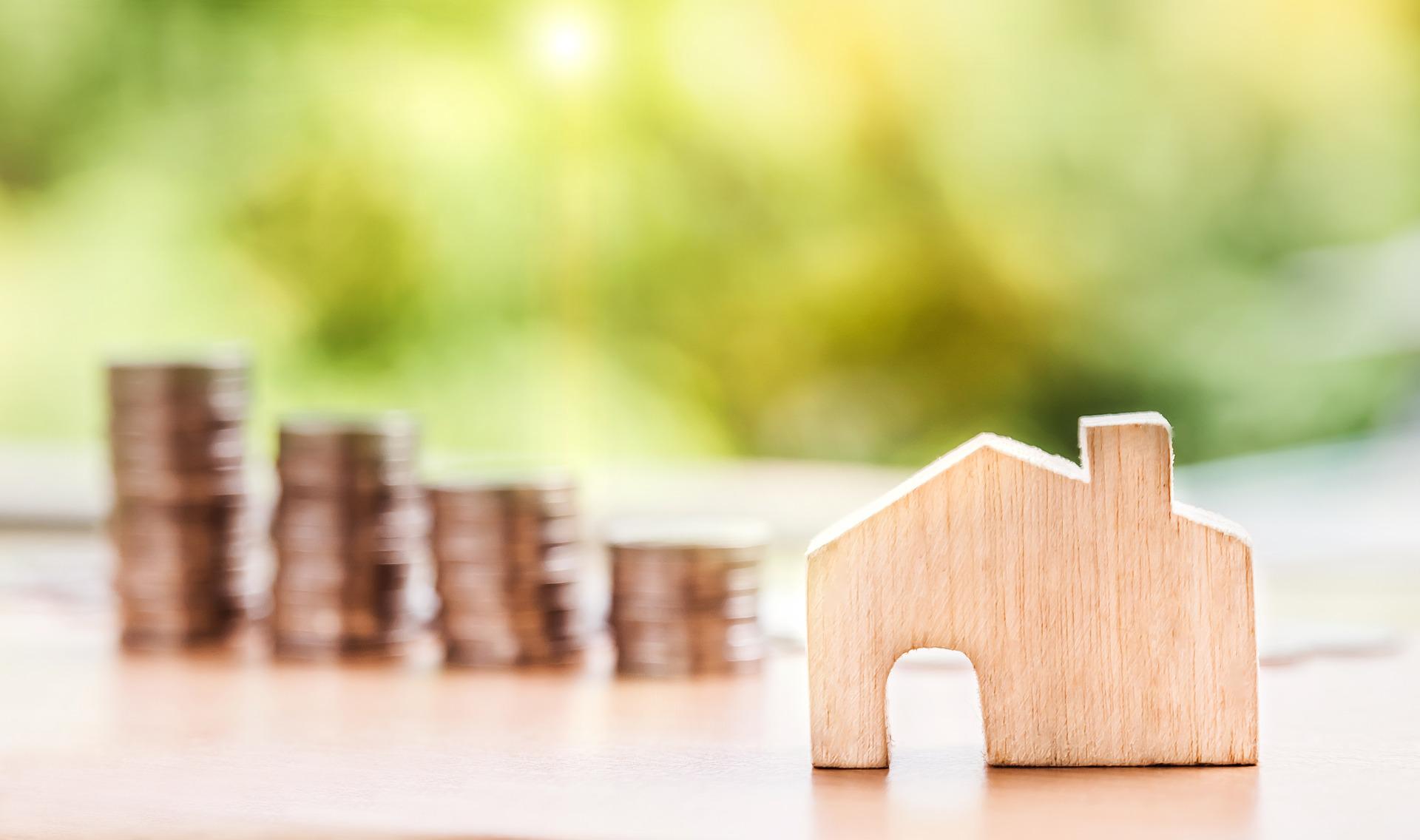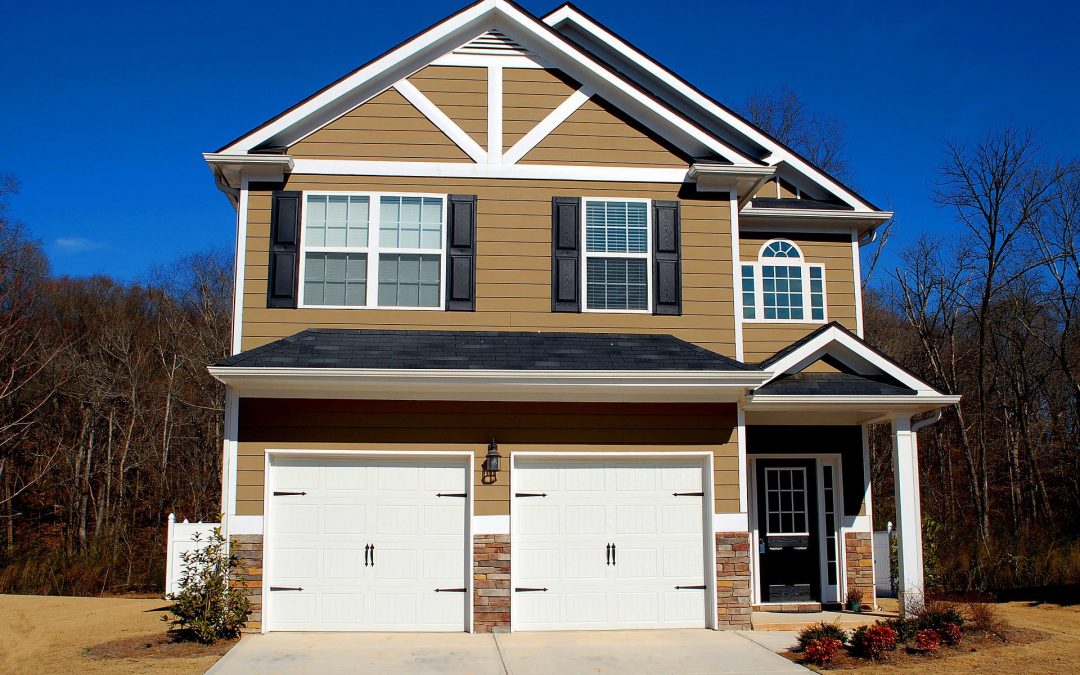Buying a home represents one of the most important decisions that you will make. In normal times, this can be a scary prospect. However, buying a home during the COVID-19 pandemic is far more challenging. Is it a good time to buy a house? If you are financially secure and ready to buy your home, then you can go ahead. But, some factors will make buying a house right now a bad idea. So let’s discuss the pros and cons of buying a home during the COVID-19 pandemic.
Why Buying a Home Now Could be a Good Idea
Purchasing your home during the pandemic may seem foolhardy, but it could be a good move. Here’s why it’s a good idea:
Very Competitive Mortgage Rates
Since July 2020, the average interest rate for a 30-year mortgage is just above 3%. So it’s a great idea to lock in a lower interest rate right now. It’s highly likely that mortgage rates will remain low throughout the remainder of 2020, and that’s a good thing.
More Time to Move
Moving takes up a lot of your time and energy. Plus, hiring movers makes it a costly one as well. However, if you do all your packing and transport some of your things yourself, then it’s more affordable. Also, since most travel has come to a halt and social events are few, then you have a lot more time to move.
Why Buying a Home Now May Not be a Good Idea
But, sometimes you may not want to buy a house just yet. Here are a few reasons:
A Low Housing Inventory and High Home Prices
According to the Federal Housing Finance Agency, home prices were 4.9% higher in May 2020 compared to May 2019. This is because fewer sellers are listing their homes during the COVID-19 pandemic, so the few houses on the market are sold at a premium. Furthermore, when mortgage rates are low, then you have a lot of buyers fighting to purchase these limited homes. The result? Strong demand in the face of a low supply of houses, means higher home prices.
Stricter Lending Requirements
Some lenders are becoming more strict with their requirements to qualify for a mortgage. So unless your credit score is very strong, you may not qualify for the best mortgage rates. Therefore, you could end up paying a higher monthly payment for your new home.
Recession and Unemployment
Unfortunately, a recession means that a job loss could be on the horizon. Furthermore, it’s not clear how fast persons can transition from unemployment to another job when there’s an economic downturn. The last thing you want to do in a time of income uncertainty is to spend money and/or take on a new loan. This is the season to go into conservation mode.
Maintaining Continuity for Children’s Wellbeing
The pandemic is difficult for adults and also for children. Children have to deal with the challenges of remote learning and being away from their family and friends. So the last you may want to do this year is to pull your children out of their familiar neighborhood and comfort zone. If you still need to move, then move to a location and home that’s similar to what you and your family have right now.
Should You Buy a Home Right Now?
This is a difficult question and you need to consider the pros and cons as well as your financial situation. As you conduct your self-assessment to figure out if you’re ready for homeownership, then consider a few vital questions such as:
What is my motivation for buying a home right now?: If your ultimate goal is to save money as a first-time home buyer, then this is quite unlikely. This is because what you save via a lower mortgage rate, you may pay in the form of a higher purchase price.
What is my financial status?: Buying a home is a serious financial undertaking. It’s not enough for you to be able to make the mortgage payments. You also need to pay for property taxes, insurance, maintenance, and repairs. You should have sufficient funds saved to cover about six months of essential living costs once you’ve paid your down payment and closing costs to get your mortgage. You want to ensure that you have some amount of funds in your savings accounts.
Now maybe the right time for you to buy your home, but be prepared to deal with the unusual circumstances. You may need to do virtual/online tours instead of in-person viewings. This is a convenient way to narrow your selection of properties to choose the one you love.
Are You Ready to Buy a House?

Are you ready to buy a house? How much house can you afford to purchase? You may not know the answer to that second question just yet. Therefore, before you snag that seemingly great deal on a home, make sure that you can analyze what it means it means to be affordable. Let’s consider some of these factors that you need to consider – especially if you’re a first-time homebuyer.
Understand Your Debt-to-Income Ratio
To buy a house means that you must have sufficient funds to pay for your home. While it would be nice to be able to pay cash for a home, that’s not the reality of most persons. So that means that you’ll need to approach a mortgage lender to get your mortgage for this home purchase.
The debt-to-income ratio (DTI) is your debt divided by your income. The resulting ratio will let you know how much debt you have for every dollar of income you earn. Why is the DTI important? It measures your ability to make all your loan payments each month. According to the Federal Housing Administration (FHA), the threshold is a DTI of 43% or less for mortgage approval. However, some lenders may be more or less rigid, depending on your local real estate market and the economic climate.
What does it mean? A DTI of 43% means that all your regular debt payments, plus your housing-related expenses (mortgage, mortgage insurance, HOA fees, property taxes, homeowner’s insurance, etc.) should not exceed more than 43% of your monthly gross income.
For example, if your monthly gross income is $5,000, you would multiply this number by 0.43 to get $2,150. This $2,150 is the total you should spend on all your debt payments (monthly mortgage included). Let’s assume that you already have monthly loan payments: minimum credit card payment of $100, a car loan payment of $300, and student loan payment of $400 (a total of $800). That means that your monthly mortgage payment can only go up to a maximum of $1,350 (that is, $2,150 – $800 = $1,350). However, just because you can borrow the maximum amount doesn’t mean that you should. Try to be prudent in all things – including buying your home.
Understand What Mortgage Lenders Want
However, that DTI is the maximum limit – and lenders may not want to lend up to that limit. They may also calculate what is known as a front-end debt-to-income ratio. This version calculates the ratio of your housing expenses (like mortgage payments and mortgage insurance) versus your gross monthly income.
Mortgage lenders tend to want this front-end DTI to be no more than 28%. For example, with a gross monthly income of $5,000 per month, then multiplying it by 0.28 yields $1,400 per month in housing expenses.
Even if you have no other debt payments, lenders don’t like to max out your DTI. That’s because they understand that you could experience unexpected financial problems like a totaled car, job loss, or a medical disability that impedes your ability to work for a while. So with a maximum DTI of 43%, you would have little to no wiggle room to address these issues and maintain your mortgage payments.
You also need to remember that your mortgage is a long-term commitment. You will need to make this payment every month for up to 30 years. So you want to ensure that your primary income is reliable and can conveniently make those mortgage payments without you experiencing any financial strain.
However, there’s a strong note of caution: Just because you’re approved for a certain level of mortgage doesn’t mean that you can actually afford it. You need to be honest about the degree of financial risk you’re prepared to take and maintain your fiscal discipline.
Can You Afford The Down Payment?

Everything about owning real estate indicates that you need to be able to pay. Ideally, you should be able to put down at least 20% of your home’s price to avoid paying private mortgage insurance (PMI). The PMI is often added to your mortgage payment and it can be anywhere from 0.5% to 1% of your entire loan amount per annum.
However, a smaller down payment doesn’t make it impossible to purchase your home. You can buy a home with as little as 3.5% down with an FHA loan. But, with a larger down payment, you avoid PMI and also:
- Enjoy smaller mortgage payments: For a $200,000 mortgage with a 4% fixed interest rate over a 30-year term, you would pay $955 each month. However, if your mortgage was $180,000 with a 4% fixed interest rate for a 30-year term, you would pay $859 per month.
- More mortgage lender choices: Some lenders will not offer a mortgage unless you put down at least 5% (or even 10%).
Being able to afford a new house right now is not as important as being able to pay for it over a longer time. However, even if you have a large down payment and you can afford to buy a home, it doesn’t mean that you need to buy a home during COVID-19.
While you want to have a large down payment, don’t sacrifice your emergency savings to put down more for your home. You don’t want to be without your backup funds during this pandemic. Furthermore, you also don’t want to be a proud homeowner who can’t pay for simple repairs on your home!
The Housing Market
Once you have placed your financial house in good order, you need to consider the state of the real estate market. Pay attention to what’s happening in the market in which you live right now (or where you intend to live). Your house purchase is one of the largest investments that you will ever make. Therefore you need to not only get the location right, but you need to get the financial dynamics right as well.
The first question you should ask yourself is if it’s cheaper to rent than to buy. If buying your home works out cheaper than renting, then you should go ahead and purchase your home.
You also should consider the long-term implications of becoming a homeowner. Real estate has always been a good way to grow and transfer wealth across generations. However, recessions and other disasters may affect home values. But, generally, these values bounce back after the crisis is over. So you need to be prepared to hold your real estate for at least five years or more to enjoy some appreciation. However, make sure that you factor in the costs of interest payments on your mortgage, property upgrades, and ongoing, routine maintenance in your appreciation calculations.
The Economic Climate
The state of the economy plays a huge role in your real estate purchase. There will be years where home prices are depressed and years when they are abnormally high. If prices are low, then you will get a good deal on your real estate purchase – you want to buy then. Buying your home in a buyer’s market ensures that you have much more room for appreciation in the future.
What will happen in the US real estate market for 2021? I’m not sure. However, if we consider history, then we can expect a drop in home prices as a result of the COVID-19 pandemic. This will also have a significant impact on the economy.
Interest Rates
The interest rates influence the size of your monthly mortgage payments. They also fluctuate with years where they are high and years where they are low. Of course, when you’re buying a home, you want to take advantage of the low-interest rates. So if interest rates are low, expect them to rise, and you need to move fast to lock in a low rate.
The Time of Year

The annual seasons also impact the size of housing stock in the real estate market. If you want the widest selection of home to choose from, then you probably want to shop during the spring months. It’s also more pleasant to view houses in ambient weather. Furthermore, if you have children you will more than likely prefer to move at the end of the school year and before the start of a new one.
But, if you don’t want to compete with a lot of buyers then you may want to shop for your home during winter. The upside is that sellers are seeing less traffic, which makes them more willing to negotiate the price. Although the number of homes will be less, you will rarely end up in a bidding war on your chosen house for purchase.
Furthermore, savvy buyers also like to shop for a home around holidays like Christmas or Easter. The intent is that the lack of competition and overall spirit of the season will help them close a deal at a great price.
Know Your Lifestyle Needs
While money is an important factor, you need to consider other factors in your decision to purchase your home. Do you need extra space soon – like for a new baby or an elderly relative that will live with you? Will your children need to change their schools with this move? Are you selling a home that you’ve lived in for less than two years? If so, would you have to pay capital gains taxes?
Do you have hobbies like cooking gourmet meals, taking weekend getaways, or working out with a personal trainer? These may be enjoyable, but they are costly. So you need to figure out how to give them up or scale them down to afford a home based on the higher DTI of 43%.
Before you start making mortgage payments, you should get in the habit of budgeting. That way, you can see exactly how much your hobbies cost and all your expenses. Once you become accustomed to living on a budget, then you will be able to reallocate your funds as needed and save more. And a higher down payment means a lower mortgage payment
Selling One Home and Buying Another
If you are selling a home and plan to buy another, then save all the proceeds from that home sale to finance your new home. Of course, you need to consider if you can afford the new home as larger homes not only attract higher mortgages but also higher maintenance costs.
When you do your income calculations, it’s best to use your current income. Don’t assume that you will make more money in the future. There will be career changes and raises don’t always occur. Be prudent in purchasing your new home and only buy as much house as you need.
Future Plans
As I stated before, you should plan to hold on to your new home for a while to enjoy the appreciation. So before you buy a house make sure that your job and other personal factors will see you living in the area you would like to buy for some time. Staying put for five years or more will help you reap the financial rewards of buying that property in the first place.
If you move around quite frequently (like a military family), then it’s better to rent than to buy. But, if you still want to buy a property, then get one that is priced much lower than the maximum mortgage you can afford. Also, if you work for a company that buys the houses of relocated employees, then you have a convenient buy-out option.
Going House Hunting? Get an Expert Realtor in Your Corner!
So is it a good time to buy a house? The answer is that it depends on your financial situation as well as your self-evaluation after considering the pros and cons of home purchase during this pandemic.
Are you searching for your new home in the Bloomington-Normal, IL area? Then get the best realtor (me, Becky Bauer!) to help you. I have successfully assisted many clients to buy homes that meet their needs and that they love. I will be happy to do the same for you. Contact me today to begin the journey to your new “home sweet home!”

